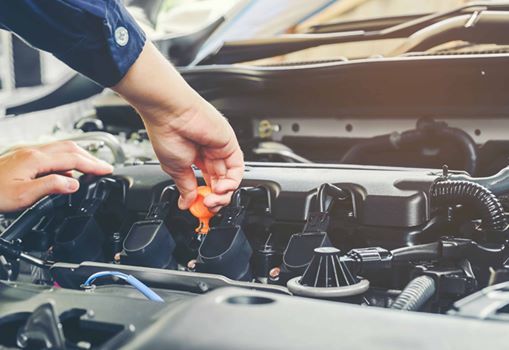Within your lifetime, the amount you invest in cars as physical assets will likely only be exceeded by what you invest in real estate. If you remain a renter over your lifetime, the most expensive car you buy might end up being your largest asset investment you ever make.
The problem with viewing cars as an asset is that they start depreciating the second they are driven off the sales lot. Even worse, they will continue depreciating until some point in time when they are worth only a fraction of what they originally cost. These are the facts of car ownership.
Your responsibility is to do everything in your power to help your cars maintain as much value as possible. As a point of reference, a 10-year old car (purchased new) that’s well-maintained has the potential of being worth more than the same make/model 5 years younger if that car is not well-maintained.
All of the above information should serve as a hint that you should focus on taking good care of your car. It’s the only way to maintain asset value for as long as possible. With this in mind, the following information should serve as a general idea of how to care for your cars.
Preventative Maintenance
Yes, it is a hassle to visit the ole mechanic for a little preventative maintenance on your car, especially if money is in short supply. Still, the savings you will realize in miles per gallon of gas and avoiding major repairs will more than compensate for what you might spend on preventative maintenance.
By preventative maintenance, we are referring to timely oil changes, checking air levels in tires, checking brakes and other fluids, and making sure electrical features are working well. The auto maker offers suggested maintenance goals. Admittedly, these stated goals tend to be a bit unreasonable, probably more of a ploy to increase auto maintenance revenues. However, the best maintenance guidelines aren’t that far off. If you report for maintenance every 5,000 miles, you should be in good condition. If you have a high-performance sports vehicle, it’s not unreasonable to do preventative maintenance every 3,000 miles.
Body and Interior Maintenance
You must remember that some of the value of your car is tied to how your car looks. If you have any doubts about that, ask yourself, “what is the first thing a prospective buyer sees?” Hint: It’s not the engine or tires.
Your car will look and feel young if you give it a little love. You need to wash and wax it on a regular basis. The washing removes dirt that can scratch surfaces while the wax offers an extra layer of protection from the elements. If you are serious about keeping your car looking good, a once a week car wash is not unreasonable. If you don’t have time, hire a professional. By the way, hand washing is preferable to car wash machines.
As for the interior, it has value too. You need to keep the carpets and upholstery in as good of condition as possible. That’s especially important if you have invested in leather upholstery. Hint: do not allow smoking in your car. The smell and tar will affect the value of your asset.
Fixing Damage
Dents and scratches are inevitable. There’s also a chance you are going to sustain some kind of damage from an accident. Insurance or not, you don’t want to let damage fester. If you do, you’ll soon find yourself dealing with issues like rusting. Fix dents and dings as promptly as possible. If money is an issue, read on.
Paying for Emergency Car Repairs
Normal maintenance is easy to build into your budget. What’s not easy to anticipate is unexpected mechanical breakdowns or malfunctions. These are certain types of critical repairs that should be addressed as quickly as possible to avoid further problems. If money is a problem, know your options to secure the funds needed to address the unexpected emergency repairs.
A savings account comes in handy for situations like this, but if you don’t have enough to cover the unexpected but critical repair, consider applying for fast loans online or borrowing the funds from a loved one. Once you get past this sort-term financial pinch, you’ll be back on the road in no time.
On the road, you can pick out the car-owners who exhibit real pride in protecting their assets. When it comes time to sell or trade in the current car for a new car, all that time and effort that’s put into loving your vehicle will come back to you in the form of extra monetary value. That alone should motivate you to make car care one of your top priorities.
